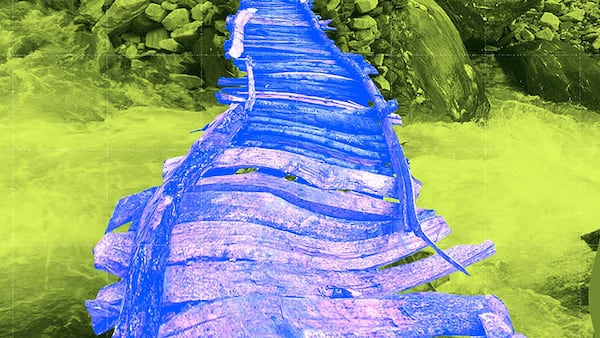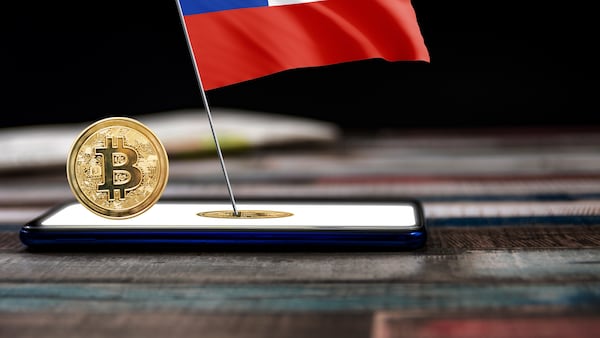- DeFi protocol governance forums have become more interesting to reporters.
- Their accessibility and transparency make them attractive for journalists.
- Not all participants play by the implicit rules of the DeFi ethos.
Following governance forums is an excellent way of keeping track of developments in crypto, DeFi correspondent Osato Avan-Nomayo says. Doing so provides journalists like him the opportunity to track the inner workings of decentralised autonomous organisations and “keep my finger on the pulse of what’s happening.”
Osato, who is based in Lagos, Nigeria, says he is among few journalists to use the technique.
“It was a matter of necessity,” he said. “Crypto news reporting in 2018 and 2019 was very evangelical. It was not journalism at all. When crypto native people realised that it was important to get the facts, they wanted their reporters to specialise.”
NOW READ: Bitcoiner Jimmy Song just won a $1.9m bet on Ethereum — or did he?
Osato began working as a general reporter for Bitcoinist and BeInCrypto.
“An editor suggested that I focus on DAO governance,” he said. Decentralised autonomous organisations were then emerging, “maybe as a way of not running afoul of regulators.”
After honing his skills at The Block, Osato joined DL News in May.
NOW READ: MakerDAO members set to approve controversial ‘whistleblower bounty’ to enforce anonymity
Governance forums are accessible to anyone but only governance token holders and delegates have the power to vote.
“A delegate is someone who votes on behalf of other governance token holders and can propose changes to a DeFI protocol,” Osato explained.
“Other people in the forum will voice their opinions, and for a reporter it is usually easy to make a preliminary determination of how important a proposal is.”
The most valuable leads usually come from anonymous sources, he added.
“In TradFi you always know people’s names or positions. In DeFI people are, if not anonymous, pseudonymous, with an online personality representing them.”
Anonymous or pseudonymous sources “are very important for getting a visceral understanding or assessment of what’s going on,” Osato said.
NOW READ: DeFi protocol in $3m scam was ‘Certik audited’
DL News’ managing editor Ekin Genç agreed that anonymity allows people to speak more freely. “This appeals to DeFi’s wider ethos, which is to make finance more accessible,” he said.
“TradFi companies have PR people, professional gatekeepers who will always have professionally crafted answers,” he added.
“There are definitely more opportunities in crypto. Some people will see it as a lack of professionalism. I say it’s more authentic and an alternative to the forced professionalism we see in the corporate world.”
Not all participants in governance forums seem to endorse DeFi’s ethos, however.
Osato recalled that when the cryptocurrency exchange Uniswap brought one proposal to its governance forum, a vehement dispute broke out over the methods of some delegates.
“Uniswap wanted to deploy its exchange on the BNB Chain,” he said. “In order to do so it needed to select a bridge protocol, something that allows you to send crypto from one chain to another.”
Two venture capital firms supported different bridge providers and one of them tried to get the vote on the proposal cancelled.
“With DeFi governance, it’s always online, you can always see it,” Osato said. But one of the rival firms “started going through back channels” and “it became like a civil war between those two venture funds.”
In TradFi, such discussions would typically take place in closed-door sessions, but here many people felt that the delegates should have stated their concerns on the forum.
The Uniswap story attracted the attention of mainstream media, notably Bloomberg and Reuters. “It was big and it involved big Silicon Valley venture capital funds,” Osato noted.
But the story was also interesting because of the special interest angles, for example when a venture capital firm might push for a certain direction in a DAO because it benefits them. Or, he said, voting blocs made up of delegates that try to steer the decisions of the communities into various outcomes.
“The tech side is detail,” he said. “What’s happening with these special interests is one reason that’s making governance forums popular.”
In response, platforms such as DefiLlama have created dashboards that curate what’s going on in all of these protocols. That makes the reporter’s job easier.
“Before you had to go to each one of them manually, have them bookmarked and check on them every morning,” Osato said. Now, he said, keeping track of the governance forums of DAOs “is the best way to keep my finger on the pulse of what’s happening.”
And what brought him to DL News? “I saw the DL News launch announcement last year and, like everyone else, was curious to find out what sort of media platform it would be,” he said.
“Then I saw the Do Kwon coverage and that iconic image of the Terra founder being ‘perp-walked’ in handcuffs and I was really impressed at the extent of their investigative reach. So, when the opportunity came to join them, I jumped at it.”
Do you have any experience of covering governance forums? Share your thoughts with me at robert@dlnews.com.


